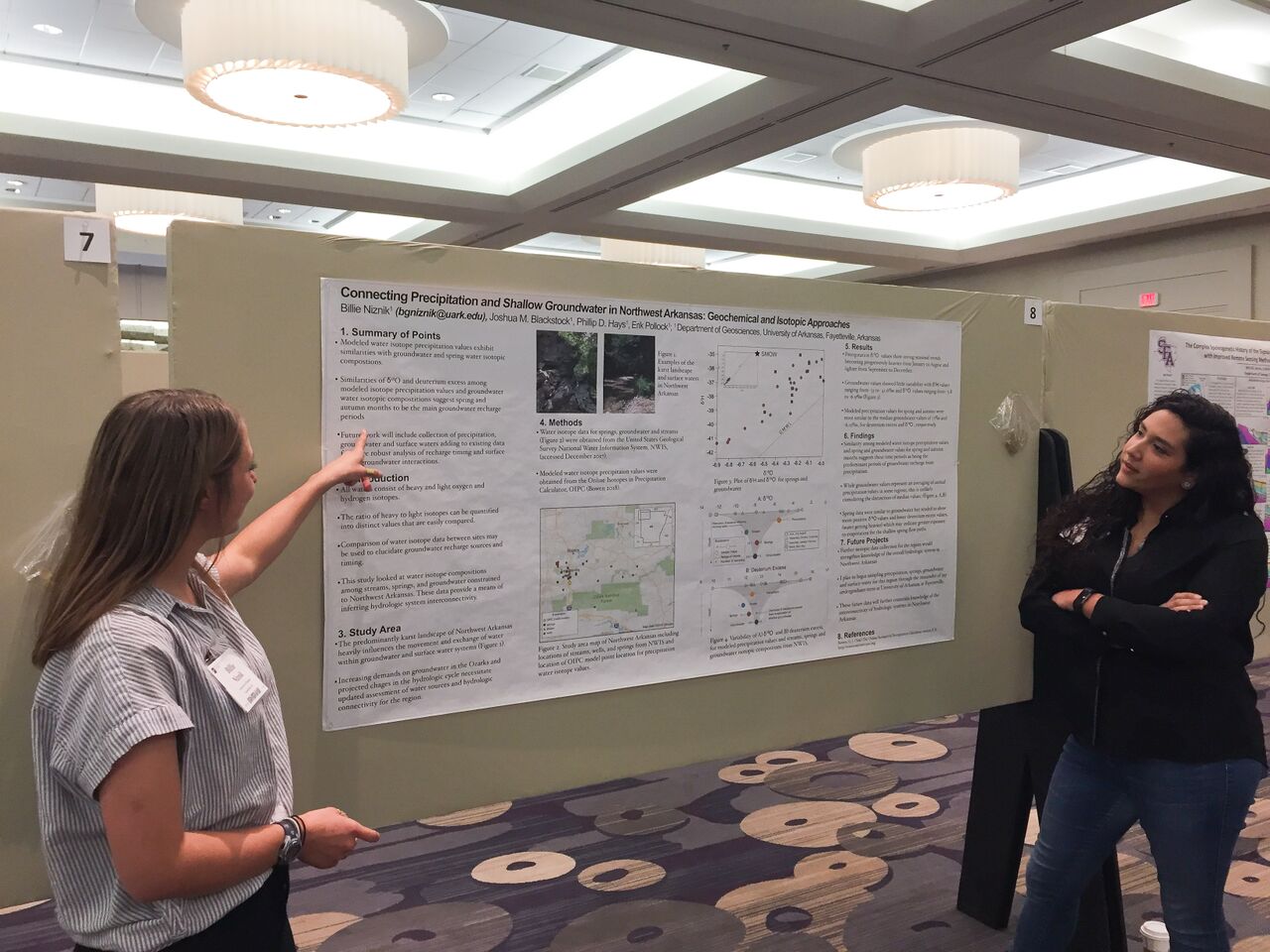Billie Niznik is an honors geology major with minors in math and sustainability. This semester, she took advantage of an Honors College Conference/Workshop Travel Grant to present her research on hydrogen and oxygen isotopes at a Geological Society of America Conference in Little Rock. Despite feeling out of place at first, the undergraduate quickly discovered how to take advantage of her surroundings and integrate into the geoscience community, reaffirming her love for the field in the process.
I had the opportunity to present research I have been working on at the Geological Society of America South-Central Section Conference in Little Rock, Arkansas. The basic premise of my work involves isotopes, with the knowledge that within any sample of water there exist heavy and light hydrogen and oxygen isotopes in varying ratios to each other. Compiling this water isotope data is a valuable tool for understanding moisture sources, groundwater recharge periods and connectivity of groundwater to springs and streams. For my presentation, I compared modeled and measured precipitation isotope data with groundwater isotope data in Northwest Arkansas to determine major seasons of recharge and connection between these systems.
This makes me sound a lot more adept and proficient in the world of geosciences than I deserve to sound. My experience at the conference was full immersion into the world of geoscience, a small undergraduate fish thrown into Deuterium and Oxygen-18-laden waters (a joke about my isotope research, I am sincerely sorry). Luckily for me, the University of Arkansas was a well-represented crew at the conference and I was quickly connected with many graduate students and professors. These connections will carry significant benefits as I finish the remaining 2 years of my undergraduate degree under the tutelage of such professors and in solidarity with other students. Over the course of the conference, I attended a variety of fascinating lectures in interdisciplinary fields, covering subjects as wide-ranging as caves, national parks, turtles, virtual reality, remote sensing and dinosaurs. I prided myself in knowing most of the words that were spoken and understanding base concepts, but was continually enthralled by the depth of research and the variety of fields geoscience encompasses. It excited me and galvanized me in my continued research, that I may be associated with such a dynamic field.
For the few intimidating hours that I stood by my poster I engaged in conversation with professional geoscientists and other university staff from around the region. I quickly developed my poster into a few talking points and had a succinct overview nailed down. Distinguished individuals asked conversation-instigating questions, prompting me to think critically on-the-spot and providing me with inspiration for future additions to my data set as well as considerations for other applications of my research. I walked away from my scheduled presentation portion with less sweat and more business cards and ideas than I expected. The conference was immensely beneficial to the continuation of my research and my pursuit of a geology degree. I learned the importance of asserting myself in conversation and forming connections and relationships with as many people as I could, both for future professional benefit and the concurrent sake of having people to explore the city with.

